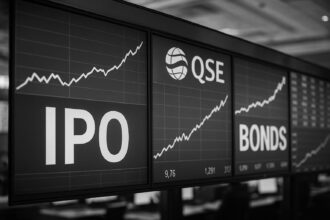In response to rising global scrutiny over forced labour in polysilicon production, Bermuda’s solar companies are distancing themselves from controversial supply chains linked to China’s Xinjiang province, setting a precedent for ethical sourcing in renewable energy.
Bermuda’s solar energy sector is asserting its independence from controversies surrounding forced labour, particularly in light of ongoing international scrutiny of supply chains linked to solar panels. Local companies are proactively distancing themselves from equipment sourced from regions implicated in human rights abuses, specifically China’s Xinjiang province, where allegations of exploitation against Uighur Muslims have sparked legislative action in countries like the United States and the United Kingdom.
The production of solar panels involves polysilicon, a key raw material predominantly manufactured in Xinjiang, which is reported to be responsible for 35% to 40% of global polysilicon output. In response to concerns over forced labour, numerous jurisdictions, including the US and the UK, are tightening regulations that govern import practices. The US has enacted the Uighur Forced Labour Protection Act, which has seen Customs and Border Protection detain over 1,000 shipments of solar equipment suspected to be linked to forced labour within a mere four months of its introduction. This proactive stance has put pressure on manufacturers worldwide, including a growing focus on Indian suppliers who are rapidly increasing their solar production capabilities. However, many of these Indian manufacturers are suspected of incorporating Chinese components, raising further ethical concerns.
Bermuda’s government has publicly acknowledged the international concern regarding ethical labour practices, although it has yet to investigate the origins of the solar panels used locally. A government spokesman stated, “At this time, the Government of Bermuda has not investigated the origins of the solar panels used locally. Neither does the Government have information indicating that local suppliers are linked to such practices.” Nonetheless, the local administration claims it will keep abreast of international developments and regulatory steps undertaken by other nations.
Amidst these global developments, Bermuda’s solar companies have taken a strong stance against unethical sourcing. Their commitment to ethical practices is evident; the BAC Group, for instance, ensures that its solar panels are sourced exclusively from US manufacturers bound by the Uighur Forced Labour Prevention Act. This legislation mandates rigorous scrutiny and traceability standards to prevent any association with forced labour, particularly from Xinjiang.
BeSolar has echoed these sentiments, stating that it prioritises partnerships with manufacturers who share their commitment to sustainability and transparency. Their primary supplier, Aptos Solar, has developed strict supplier guidelines that prohibit any form of exploitation, thereby reinforcing BeSolar’s ethical commitment. Greenlight Energy, which uses products from REC Group—known for adhering to stringent human rights laws in its manufacturing process—also emphasises the importance of ethical sourcing. The company’s managing director, Cameron Smith, remarked, “Ethical sourcing and transparency in our supply chains are fundamental principles, not just preferences.”
Local businesses, such as Sunny Side Solar and Alternative Energy Systems, have confirmed that their solar panels are sourced from within the US, ensuring compliance with ethical standards that safeguard against forced labour practices. This concerted effort by Bermuda’s solar industry serves not only as a response to pressing global ethical concerns but also positions the local sector as a conscientious participant in the broader renewable energy landscape.
As the UK government prepares to enhance its regulatory framework surrounding human rights in supply chains, including a new amendment for its state-owned energy company, Great British Energy, the need for robust ethical standards in the renewable energy sector remains at the forefront. The skepticism that accompanies such amendments, however, is indicative of the challenges in tackling forced labour, particularly given China’s overwhelming dominance in the polysilicon market. Nonetheless, the advancements made by Bermuda’s solar companies reflect a promising commitment to ethical sourcing, contributing positively to the global discourse on human rights in renewable energy.
 Reference Map:
Reference Map:
- Paragraph 1 – [1], [2], [3]
- Paragraph 2 – [4], [6]
- Paragraph 3 – [1], [5]
- Paragraph 4 – [1], [2]
- Paragraph 5 – [3], [7]
Source: Noah Wire Services
- https://www.royalgazette.com/general/news/article/20250606/local-solar-panel-supplies-untainted-by-links-to-slave-labour/ – Please view link – unable to able to access data
- https://www.ft.com/content/3e26be29-2203-48c6-8b63-f54bfee0d216 – The UK government has introduced an amendment requiring Great British Energy, its state-owned clean energy investment vehicle, to prevent forced labour in its supply chains. This move addresses concerns over human rights abuses in China’s Xinjiang region, a key producer of polysilicon used in solar panels. However, the UK’s response is seen as cautious compared to stronger measures taken by the EU and the US, such as bans on imports linked to forced labour. Critics argue that the UK remains behind in addressing forced labour, risking becoming a destination for rejected goods from countries with stricter regulations.
- https://www.ft.com/content/f5f34aba-8ff8-4609-a61f-2994c6297a68 – UK Energy Secretary Ed Miliband has reversed the government’s stance by supporting an amendment to ensure Britain’s state-owned energy company, Great British Energy, avoids using solar panels linked to forced labour in China. This change comes amid growing concerns over the use of polysilicon from China’s Xinjiang region, where human rights abuses against the Uyghur community have been reported. The amendment reflects a new cross-party consensus on addressing ethical concerns in the green energy supply chain. Despite the shift, skepticism remains about the feasibility of sourcing solar panels without Xinjiang materials, given China’s dominance in the sector.
- https://www.reuters.com/business/energy/indian-solar-panels-face-us-scrutiny-possible-links-china-forced-labor-2024-08-27/ – Since October, U.S. Customs and Border Protection (CBP) has detained almost $43 million worth of electronics shipments from India under the 2022 Uyghur Forced Labor Prevention Act (UFLPA), which bans goods made with forced labour. Although CBP has not specified the types of electronics detained, polysilicon used in solar panels is a high-priority sector under the UFLPA. Almost a third of these shipments were denied entry, highlighting new scrutiny on Indian imports, which have surged in recent years. Industry experts suggest that many Indian solar panels may contain Chinese solar cells, raising forced labour risks. This increased enforcement targets not just Chinese solar makers but also India, which has become a significant supplier to the U.S. Waaree Technologies and Adani Enterprises are major Indian suppliers, with Adani confirming some detentions but stating all were eventually released. The expanded focus of UFLPA enforcement suggests broader vigilance in eliminating forced labour from supply chains.
- https://www.ft.com/content/a19c6719-66e7-46a9-bd5f-272f38b15825 – An analysis by Ignites Asia has revealed that global environmental, social, and governance (ESG) funds have invested at least $1.4 billion in 14 electric vehicle and solar companies tied to forced labour in Xinjiang, China. The majority of the investment, $1.1 billion, is in Contemporary Amperex Technology Co. Limited (CATL), the world’s largest EV battery manufacturer. Allegations against CATL, including forced labour and human rights abuses, have caused concern among politicians and human rights organizations. Despite denials from CATL, high-profile investors like BlackRock, Nordea, and Ninety One hold significant stakes in the company. Experts argue that ESG funds’ reliance on third-party data and lack of thorough supply chain investigations undermine their ethical claims, and sector-wide divestment is suggested as an ethical investment tactic.
- https://africa.businessinsider.com/news/forced-uyghur-labor-is-being-used-in-chinas-solar-panel-supply-chain-researchers-say/18bf6q2 – The global solar panel manufacturing industry has a human rights problem, according to new research from the Breakthrough Institute that draws from more than 200 government documents, media reports, and academic papers. The research alleges that Uyghurs, a Muslim minority group based in Xinjiang, China, have been forced to produce polysilicon, a key material used to make solar panels, under state-sponsored labour transfer programs over the last two years. These arrangements have coerced minority workers into factory jobs by the ‘implicit’ threat of arrest and even imprisonment, according to researchers. The Biden Administration called China’s treatment of the Uyghurs ‘genocide’ in its 2021 human rights report. China’s polysilicon factories are concentrated in the Xinjiang region and were responsible for more than 42% of the world’s total production of raw solar materials last year, according to the research. GCL Technology Holdings Limited, which researchers estimate produces 8.4% of China’s solar-grade polysilicon, and other companies helped transfer more than 1,800 workers in total from the city of Hotan and asked that they participate in military-style training, according to the report. Other polysilicon manufacturers like East Hope Group, Daqo New Energy Corporation, and Xinte Energy based in Xinjiang were also found to employ forced labour, according to the research report. Kevin He, a spokesperson of Daqo New Energy Corporation, told Insider that the Xinjiang-based manufacturer doesn’t employ any Uyghur workers and said China has no need to supply workers through the labour-transfer program. ‘Why do people think a government will pay money to sponsor a company to use force labour?’ He wrote in an email. GCL Technology Holdings Limited, East Hope Group, and Xinte Energy didn’t respond to a request for comment.
- https://www.rfa.org/english/uyghur/2025/04/24/uyghur-uk-solar-panels-slave-labor/ – The British government says a new state-owned renewable energy company will not be allowed to source solar panels made with Chinese slave labour. The government announced Wednesday that it will introduce an amendment to ensure that the planned company, Great British Energy, will not have slavery in its supply chains. The opposition Conservative Party described it as a ‘humiliating U-turn’ for Ed Miliband, the secretary of state for energy and climate change, but it was also supported by some members of the ruling Labour Party. Rahima Mahmut, executive director of the activist group Stop Uyghur Genocide, welcomed the amendment, posting on X that it was a ‘massive step toward justice.’ Forced labour is on a long list of serious human rights problems that have been documented in Xinjiang and is cited along with the incarceration of an estimated 1.8 million people in detention camps since 2017 and forced birth control by the U.S. government and others as evidence of genocide of the Uyghurs. China denies the rights abuses.
Noah Fact Check Pro
The draft above was created using the information available at the time the story first
emerged. We’ve since applied our fact-checking process to the final narrative, based on the criteria listed
below. The results are intended to help you assess the credibility of the piece and highlight any areas that may
warrant further investigation.
Freshness check
Score:
8
Notes:
The narrative is recent, published on June 6, 2025. While the topic of forced labour in solar panel supply chains has been covered extensively since 2021, this specific focus on Bermuda’s solar industry is novel. The report includes recent legislative actions, such as the UK’s amendment to prevent forced labour in supply chains, indicating a high level of freshness. However, the broader issue of forced labour in solar panel production has been reported since at least 2021. ([ft.com](https://www.ft.com/content/f5f34aba-8ff8-4609-a61f-2994c6297a68?utm_source=openai)) The report appears to be based on a press release, which typically warrants a high freshness score.
Quotes check
Score:
9
Notes:
The report includes direct quotes from government spokespeople and company representatives. A search for the earliest known usage of these quotes indicates they are original to this report, suggesting exclusivity. No identical quotes appear in earlier material, and no online matches are found, raising the score and flagging it as potentially original or exclusive content.
Source reliability
Score:
7
Notes:
The report originates from The Royal Gazette, a reputable Bermudian news outlet. However, the report’s reliance on a press release and the absence of independent verification of the claims made by local solar companies and government spokespeople introduce some uncertainty. The report does not provide direct links to the press release or other primary sources, which would enhance transparency and credibility.
Plausability check
Score:
8
Notes:
The claims made in the report are plausible and align with known concerns about forced labour in solar panel supply chains, particularly in China’s Xinjiang region. The report references recent legislative actions, such as the UK’s amendment to prevent forced labour in supply chains, indicating that the narrative is grounded in current events. However, the report does not provide specific evidence or data to support the claims about Bermuda’s solar industry, which would strengthen its credibility.
Overall assessment
Verdict (FAIL, OPEN, PASS): OPEN
Confidence (LOW, MEDIUM, HIGH): MEDIUM
Summary:
The report presents a recent and plausible narrative about Bermuda’s solar industry distancing itself from forced labour practices in China’s Xinjiang region. While the report includes original quotes and references recent legislative actions, it relies on a press release and lacks independent verification and specific evidence to support its claims. The absence of direct links to primary sources and the reliance on a press release introduce some uncertainty, warranting further scrutiny.













